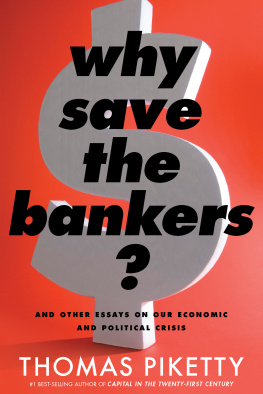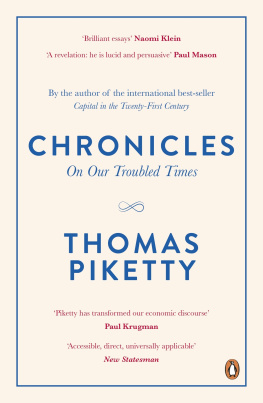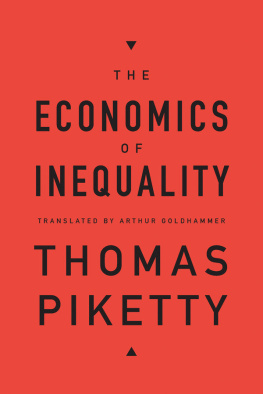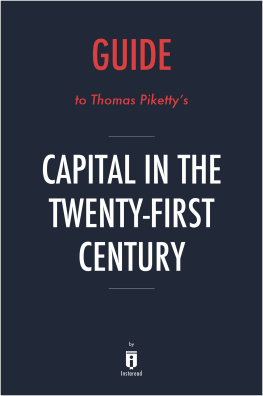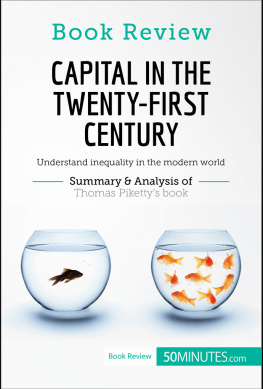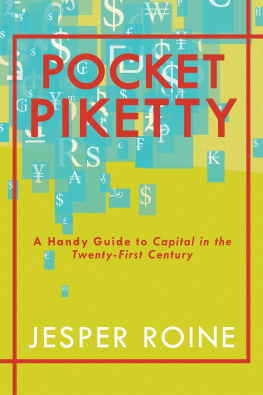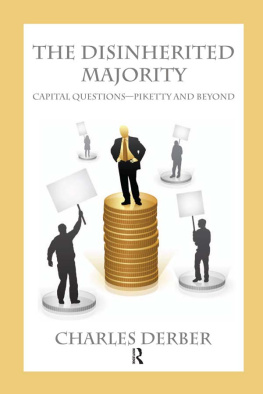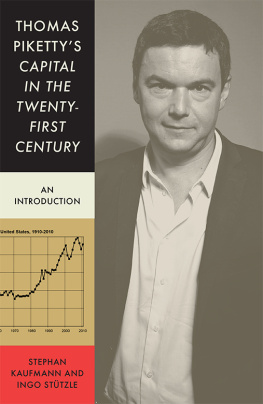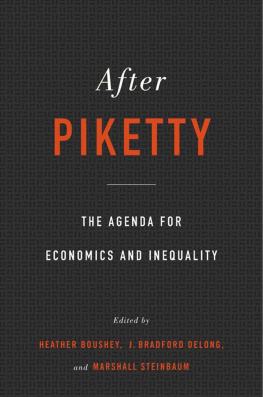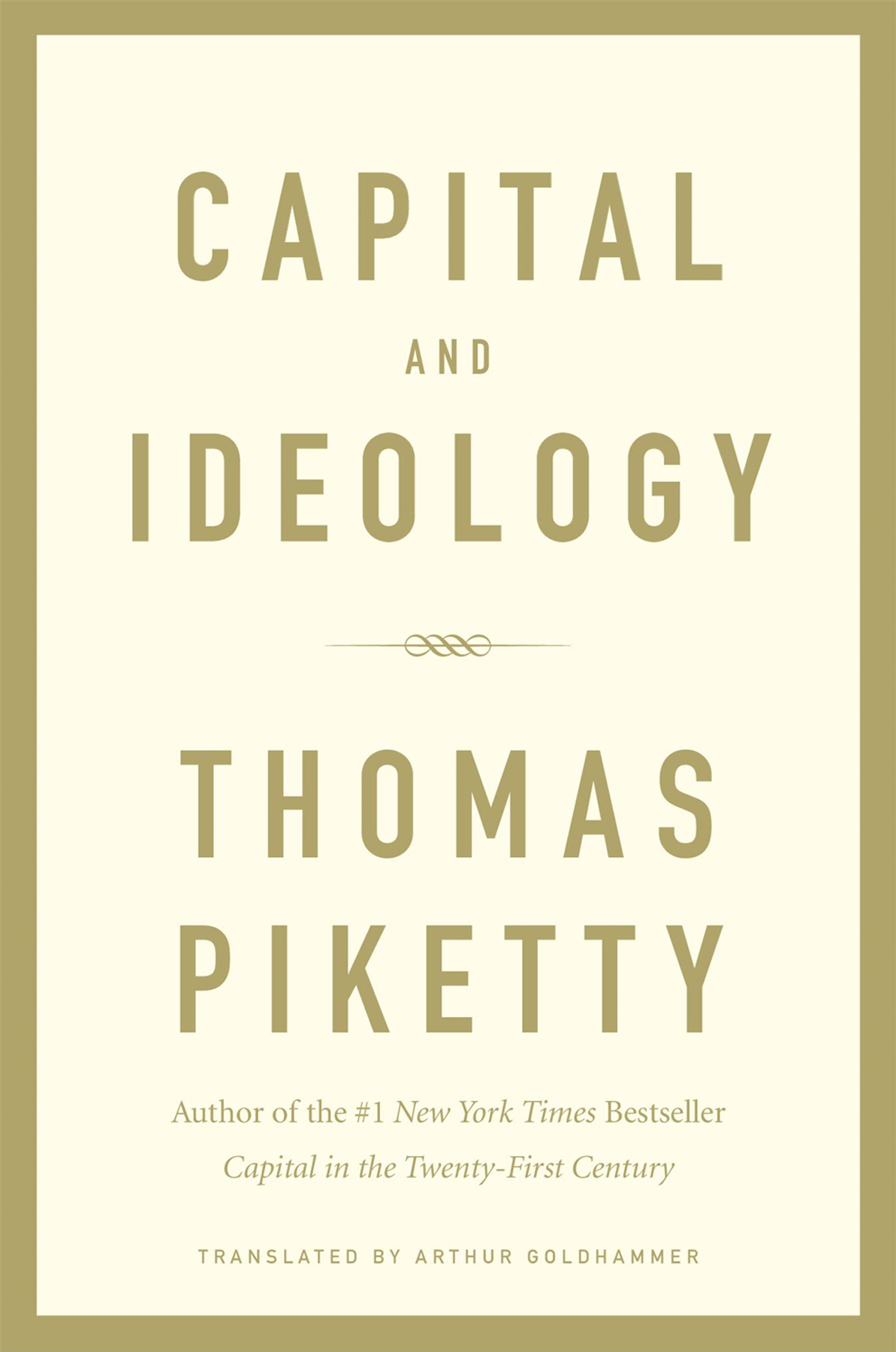Names: Piketty, Thomas, 1971 author. | Goldhammer, Arthur, translator.
Title: Capital and ideology / Thomas Piketty, translated by Arthur Goldhammer.
Other titles: Capital et idologie. English
Description: Cambridge, Massachusetts : Harvard University Press, 2020. | First published in French as Capital et idologie, ditions du Seuil, Paris, 2019Title page verso. | Includes bibliographical references and index. |
Subjects: LCSH: Equality. | IdeologyEconomic aspects. | Socialism. | EconomicsPolitical aspects. | Social change. | Property.
This book is in large part a sequel to Capital in the Twenty-First Century (French edition, 2013; English, 2014), but it can be read independently. Like the previous work, it is the culmination of a collective effort in the sense that it would never have seen the light of day without the help and support of numerous friends and colleagues. I am of course solely responsible for the interpretations and analyses developed in the pages that follow, but by myself I would never have been able to assemble the historical sources on which this research rests.
I rely in particular on the data collected in the World Inequality Database (http://WID.world). This project represents the combined effort of more than a hundred researchers in more than eighty countries around the world. It is currently the largest database available for the historical study of income and wealth inequality both between and within countries. For the purposes of this book I have also collected numerous other sources and documents concerning periods, countries, and aspects of inequality not well covered by WID.world, including, for example, data on preindustrial and colonial societies; on inequalities of education, gender, race, religion, and status; and also on religious beliefs, political attitudes, and electoral behavior.
Only the principal references are cited in the text and footnotes. Readers interested in detailed information regarding the whole range of historical sources, bibliographic references, and methods used in this book are urged to consult the online technical appendix at http://piketty.pse.ens.fr/ideology.
Interested readers will also find in the online appendix many graphs and data series not included in the text due to space limitations. I sometimes refer to these sources in the footnotes.
The glossary at the end of this book contains definitions for several terms that may be unfamiliar to readers, which are marked with an asterisk in the text.
I am particularly grateful to Facundo Alvaredo, Lucas Chancel, Emmanuel Saez, and Gabriel Zucman, with whom I codirected the WID.world project and the World Inequality Lab at the Paris School of Economics and the University of California at Berkeley. Out of this joint venture came the recent World Inequality Report 2018 (http://wir2018.wid.world), of which I make abundant use in this book. I also wish to thank the institutions that made this project possible, first and foremost the cole des Hautes tudes en Sciences Sociales (EHESS), where I have taught since 2000one of the few institutions in the world where social scientists of all stripes can listen to and exchange ideas with one another. I also wish to thank the cole Normale Suprieure and all the other institutions that joined forces in 2007 to create the Paris School of Economics, which I hope will contribute to the development of the economics of the twenty-first century, an economics that is at once political and historical, multipolar and multidisciplinary.
For their invaluable assistance I also wish to thank Lydia Assouad, Abhijit Banerjee, Adam Barb, Charlotte Bartels, Erik Bengtsson, Asma Benhenda, Yonatan Berman, Nitin Bharti, Thomas Blanchet, Ccile Bonneau, Manon Bouju, Jrme Bourdieu, Antoine Bozio, Cameron Campbell, Guillaume Carr, Guilhem Cassan, Amlie Chelly, Bijia Chen, Denis Cogneau, Lo Czajka, Anne-Laure Delatte, Mauricio De Rosa, Richard Dewever, Mark Dincecco, Esther Duflo, Luis Estevez-Bauluz, Ignacio Flores, Juliette Fournier, Bertrand Garbinti, Amory Gethin, Jonathan Goupille-Lebret, Yajna Govind, Julien Grenet, Jean-Yves Grenier, Malka Guillot, Pierre-Cyrille Hautcoeur, Stphanie Hennette, Simon Henochsberg, Cheuk Ting Hung, Thanasak Jemmama, Francesca Jensenius, Fabian Kosse, Attila Lindner, Noam Maggor, Clara Martinez Toledano, Ewan McGaughey, Cyril Milhaud, Eric Monnet, Marc Morgan, Mathilde Munoz, Alix Myczkowski, Delphine Nougayrede, Filip Novokmet, Katharina Pistor, Gilles Postel-Vinay, Jean-Laurent Rosenthal, Nina Rousille, Guillaume Sacriste, Aurlie Sotura, Alessandro Stanziani, Blaise Truong-Lo, Antoine Vauchez, Sebastien Veg, Marlous van Waijenburg, Richard Von Glahn, Daniel Waldenstrm, Li Yang, Tom Zawisza, and Roxane Zighed as well as all my friends and colleagues at the Centre Franois-Simiand dHistoire conomique et Sociale and the Centre de Recherches Historiques of the EHESS and the Paris School of Economics.
I also owe special thanks to Arthur Goldhammer. Every time I go through the pages of the English version of Capital in the Twenty-First Century or Capital and Ideology, I realize how fortunate I was to have Art as my translator. Without his help, I would never have been able to communicate with English-speaking readers with the same precision and elegance.
This book has also benefited from the numerous debates and discussions in which I have had the good fortune to participate since the publication of Capital in the Twenty-First Century. I spent much of 20142016 traveling around the world, meeting readers, researchers, dissenters, and citizens eager to join the debate. I participated in hundreds of discussions about my book and the questions it raised. From these many encounters I learned an immense amount, which has helped me to delve deeper into the historical dynamics of inequality.
Among the many shortcomings of my previous book, two deserve special mention. First, that work focused too exclusively on the historical experience of the wealthy countries of the world (in Western Europe, North America, and Japan). This was due in part to the difficulty of accessing historical sources adequate for the study of other countries and regions. It was nevertheless a choice that sharply restricted my focus and thinking. Second, the earlier book tended to treat the political and ideological changes associated with inequality and redistribution as a sort of black box. I did propose a number of hypotheses concerning, for example, changes in political ideas and attitudes in regard to inequality and private property as a result of the two world wars of the twentieth century, economic crises, and the communist challenge, but I never tackled head-on the question of how inegalitarian ideologies evolved. In this new work I attempt to do this much more explicitly by examining the question in a much broader temporal, spatial, and comparative perspective.


